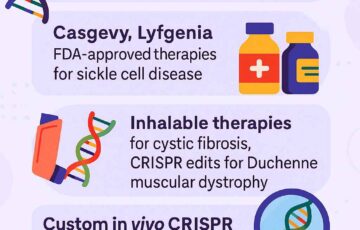Scientists Use Stem Cells to Reverse Diabetes
Why in the news?
- A 25-year-old woman with type 1 diabetes, an autoimmune disease that destroys insulin-producing cells, underwent a pioneering treatment using induced pluripotent stem (iPS) cells.
- Researchers generated 3D clusters of pancreatic islets from the iPS cells, which were then injected into her abdominal muscles.
Remarkable Results:
- Within three months post-transplant, the woman began producing her own insulin, marking the first successful use of stem cells to treat type 1 diabetes.
- Two and a half months later, she maintained sufficient insulin production without needing additional insulin injections, a level sustained for over a year.
Future Implications and Research:
- The study, led by Chinese scientists and published in Cell, shows promise but requires replication in larger populations.
- Experts like Jay Skyler from the University of Miami emphasise the need to confirm that the woman’s cells can continue insulin production for up to five years before considering her “cured.”
- Researchers aim for this treatment to help patients avoid the need for immunosuppressants, enhancing the prospects for diabetes management.
About Diabetes:
- Definition: A family of diseases where the body cannot effectively produce or use insulin, leading to energy conversion issues.
- Prevalence:6 million Americans have diabetes (7.8% of the population); 5.7 million are undiagnosed.
- Types of Diabetes:
- Type 1: Autoimmune disease; daily insulin injections required.
- Type 2: Associated with hereditary and lifestyle factors.
- Gestational: Occurs during pregnancy.
What is T1D?
- Definition: Chronic condition where the pancreas produces little or no insulin, crucial for regulating blood sugar.
- Demographics: Primarily affects children and young adults; can occur at any age.
- Prevalence in India: Over 240,000 children/adolescents with T1D, the highest in Southeast Asia.
- Nature: Autoimmune disorder; immune system attacks insulin-producing pancreatic cells.
- Causes: Exact cause unknown; genetic and environmental factors likely contribute.
Treatment and Complications
- Management: Requires insulin injections or pumps to control blood sugar levels.
- Complications in Children:
- Hypoglycemia (low blood sugar)
- Hyperglycemia (high blood sugar)
- Ketoacidosis (life-threatening fat breakdown)
- Long-term risks: Eye, kidney, nerve, and cardiovascular damage.
Type II Diabetes and Stem Cells:
- Study Findings (2017): Analysed 13 studies with 342 patients; observed improved glucose control and reduced insulin dependence lasting up to four years.
- Ongoing Questions: Ideal candidates, administration routes, optimal doses, and the need for multiple transfusions remain unclear.
Related Initiatives:
- National Programme for Prevention and Control of Cancer, Diabetes, Cardiovascular Diseases and Stroke (NPCDCS):
- Launched in India in
- Focuses on preventing major non-communicable diseases (NCDs).
- Aims to strengthen infrastructure, human resource development, health promotion, early diagnosis, management, and referral.
- World Diabetes Day:
- Observed annually on November 14.
- The 2022 campaign emphasises access to diabetes education.
- Global Diabetes Compact:
- Launched by WHO to combat diabetes.
- Marks the centenary of insulin discovery.
Associated Article:
https://universalinstitutions.com/defusing-the-ticking-time-bomb-called-diabetes/





